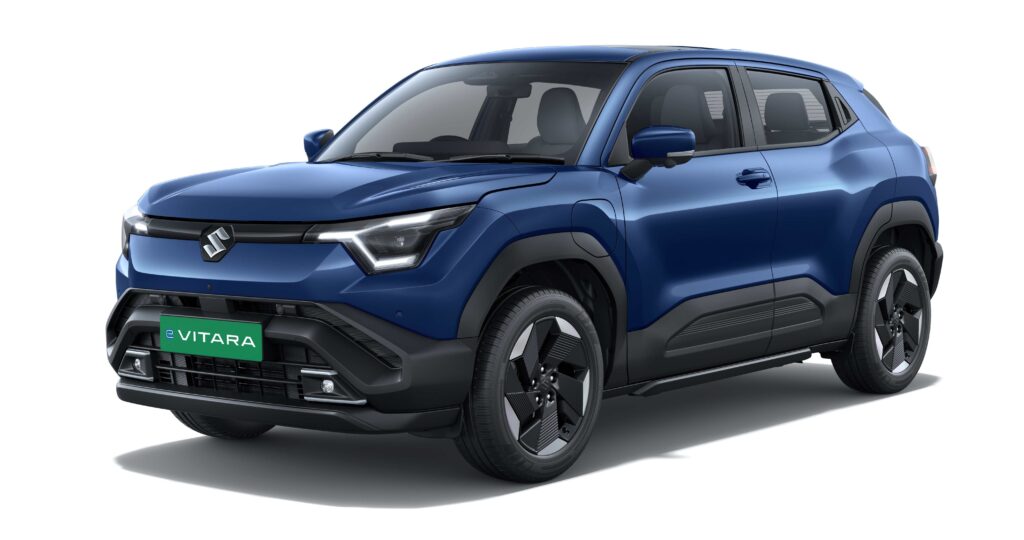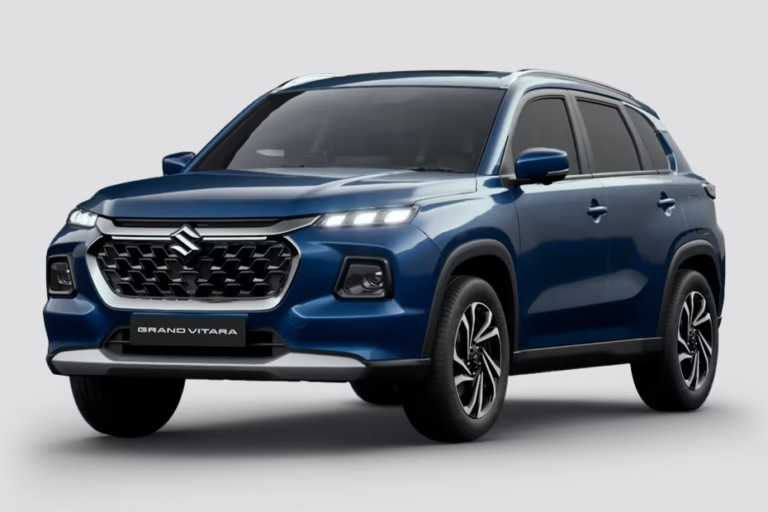India’s leading automobile manufacturer, Maruti Suzuki, has officially kicked off the production of its much-awaited electric SUV, the e-Vitara, at its Hansalpur manufacturing facility in Gujarat. This strategic move is not only a significant leap in the company’s EV journey but also a landmark step for India’s evolving electric mobility sector. The e-Vitara was first showcased at the Auto Expo 2025 and quickly gained traction due to its futuristic design, global positioning, and promises of efficient performance.
With production now underway, the e-Vitara is being manufactured for both domestic sales and international exports. The company has revealed that the electric SUV will be exported to more than 100 global markets, including Europe, Japan, and several Southeast Asian countries. This development puts India on the map as a serious player in global EV exports, thanks to the rapidly advancing production ecosystem led by Suzuki Motor Gujarat, a wholly owned subsidiary of Maruti Suzuki. This facility is known for its high output and will play a crucial role in meeting global demand for the new model.
The e-Vitara will be offered in two battery pack options—61.1 kWh and 48.8 kWh—both delivering a range of up to 500 km on a single charge, making it one of the longest-range EVs in its segment. Equipped with DC fast charging, the SUV can charge up to 80% in approximately 50 minutes, which caters well to urban and intercity usage. Powering the e-Vitara is a single electric motor paired with a lithium-ion battery, giving it an impressive on-road presence while maintaining efficiency. The vehicle also rides on Suzuki’s innovative Heartect-e platform, designed to ensure enhanced rigidity, reduced weight, and optimised energy usage.
Feature Highlights, Trims, and Future Plans
In terms of design and features, the e-Vitara is available in three distinct trims: Delta, Zeta, and Alpha, offering choices to cater to varying customer needs and preferences. The exterior design is highlighted by LED projector headlamps, a stylish front grille, 18-inch alloy wheels, and a sleek, coupe-style silhouette that seamlessly blends style and aerodynamics. Customers will be able to choose from ten colour options, including popular tones such as Arctic White, Nexa Blue, and Opulent Red, with some dual-tone configurations featuring a black contrasting roof for added flair.
Inside, the cabin of the e-Vitara is rich in tech and comfort. It includes dual 10-inch digital screens, ventilated front seats, ADAS (Advanced Driver Assistance Systems) for added safety, a 360-degree camera, wireless charging, ambient lighting, and multiple drive modes to adapt to different driving conditions. Notably, it features ADAS Level 2 capabilities, such as lane departure warning, adaptive cruise control, and automatic emergency braking, making it one of the safest vehicles in its class.
Maruti Suzuki’s production target for the e-Vitara in the first fiscal year stands at 70,000 units, though initial reports indicated a downward revision due to global supply chain challenges, particularly concerning rare earth materials. Regardless, the brand remains committed to ramping up production and fulfilling both domestic and global demands. In fact, the e-Vitara has already made its way to select international markets like the UK, where it is priced competitively at around £29,999.
What sets this launch apart is the strong emphasis on localisation. The e-Vitara benefits from a high degree of locally sourced components, with Suzuki, Toshiba, and Denso jointly producing lithium-ion battery electrodes in India. This not only supports the Make in India initiative but also reduces dependency on imported parts and brings down long-term production costs.
Conclusion: e-Vitara as a Symbol of India’s EV Growth
The launch and production of the Maruti Suzuki e-Vitara marks a major turning point in India’s electric vehicle roadmap. By building an EV that is designed for both Indian and global consumers, Maruti is redefining its role in the future of mobility. The focus on innovation, eco-friendly performance, global adaptability, and local manufacturing excellence positions the e-Vitara as a vehicle not just for the road—but for the future.
With this launch, Maruti Suzuki has set a new benchmark in the affordable electric SUV segment, while reinforcing India’s place on the global EV stage. As the launch date draws closer, all eyes are now on how the Indian market responds to this bold step into electric territory.


